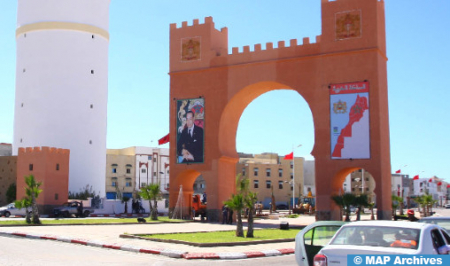Autonomy Initiative Grants Broad Executive Powers to Moroccan Sahara Region – Expert –
The Moroccan Autonomy Initiative presents a list of well-defined competences assigned to the Sahara autonomous region, allowing the population of the Sahara Region to manage their own affairs, underlined Dr Alan Howard, Emeritus Professor of Anthropology at the American University of Hawaii. Speaking at an International Online Research Seminar on territorial autonomy organized by Morocco’s Permanent Mission at the United Nations in New York, the expert said that “the Moroccan Initiative presents a well-defined list of competences assigned to the Sahara autonomous region, allowing the population of the Sahara Region to manage their own affairs and respond to their own needs and aspirations, while respecting their cultural identity”. Comparing Rotuma’s autonomy model (Oceania) with the Moroccan Sahara Autonomous Region Initiative, Howard stated that the latter has received support from members of the Security Council of the United Nations, who considered the initiative “as a serious, credible and pragmatic solution to put a definitive end to the regional dispute over the Moroccan Sahara”. He explained that the Article 5 of the Morocco Initiative, in contrast to the Rotuma Bills of 1959 and 2015, clearly announces a large set of powers, guarantees and privileges that will be given to the population of the Sahara Region in order to exercise a leading role in the bodies and institutions of the region, adding that both Articles 12 and 13 present the wide range of areas over which the institutions of the Sahara Region will exercise powers and define the financial resources that will be allocated to the local population in order to run the local bodies and institutions. Speaking of an obvious difference between the two cases with regard to the recognition of ethnic populations as politically relevant groups, Howard indicated that the Moroccan model recognizes the uniqueness of Sahrawi populations and pledges to provide them with the opportunity to run their own affairs. He further stated that the Moroccan Initiative for the Sahara Region is based on mutual acceptance of both the sovereignty of Morocco over the Sahara region and the full autonomy of that region, noting that its Articles 5 and 6 provide that the Sahara populations will themselves run their affairs democratically, through legislative, executive and judicial bodies enjoying exclusive powers. They will also have the financial resources needed for the region’s development in all fields, and will take an active part in the nation’s economic, social and cultural life while the State will keep its powers in the royal domains, especially with respect to defense, external relations and the constitutional and religious prerogatives of His Majesty the King, he added. In addition, he noted that the Moroccan Initiative promotes a critical process of negotiation and reconciliation that will lead to a lasting agreement based on mutually acceptable principles of autonomy, adding that once the autonomy status is established, the Sahrawi populations will not only be represented in their regional parliament and government, but they will also enjoy representation in the national parliament and all national institutions. During this seminar, the various speakers presented the models of autonomy in several regions of the world. They stressed the importance of promoting regular consultations with a view to improving and expanding the different models of autonomy around the world so that they are adapted to the needs and ambitions of local populations.

